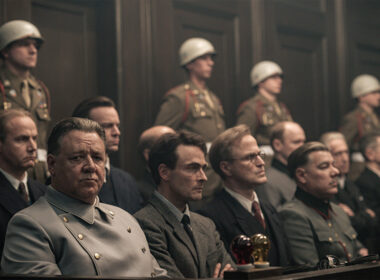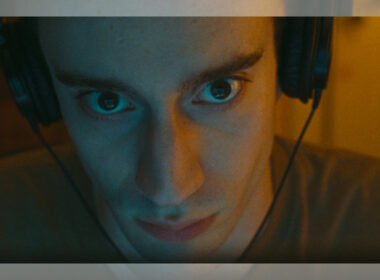Rating: **
I set out to write this review with the goal to not bring up Alfred Hitchcock’s 1940 adaption of Daphne du Maurier’s novel. It is unfair to compare a new interpretation of a novel, especially with a Hitchcock classic, of all things, and one with Joan Fontaine and Laurence Olivier in the main roles, as if there wasn’t enough pressure.
No story is untouchable and every one can be remade, modernised, and recontextualised if it adds to the source material an element that was missing before. That is why I was on board with this new version from director Ben Wheatley. As a filmmaker Wheatley is the enfant-terrible of modern British cinema, ferociously against narrative conventions and with a compelling visual eye, his films defy audience expectations weather it’s in sci-fi (High-Rise), or road movies (The Sightseers).
Accompanying him is Clint Mansell, composer extraordinaire who mixes industrial and classical with a brutal dramatic twist. If anyone could turn one of the most famous gothic novels on its head, it is these two.
Then why is this new Rebecca so humdrum?
Du Maurier’s novel follows a timid middle-class woman (Lily James) who marries the aristocrat widower Maxim de Winter (Armie Hammer). The new Mrs de Winter moves to Manderley, the de Winter’s opulent estate off the coast of Cornwall, and struggles to be accepted as a new lady of the house since the first Mrs de Winter, the Rebecca of the title, died tragically.
Adored by everyone, including the housekeeper Mrs Danvers (Kristin Scott Thomas), Rebecca was a force of nature and the exact opposite of the inexperienced and naïf protagonist.
For the most part, the film is faithful to the novel, but it’s the little things it changes for dramatic value that sadly show its shortcomings. Like any good gothic novel, du Maurier’s style is dark, brooding and more subtle, which helps to develop an increasingly uncomfortable dramatic pressure on our protagonist without having to spell things out.
The film is more romantic but, in the process, fails to characterise compelling characters with believable chemistry. In a passing moment, the protagonist says that everything she knows she learned from books like she’s reading the description of her character. Sometimes it feels that Wheatley breaks the shackles and offers a glimpse of his style, like a great moment in the party where Mrs. de Winter jumbles between the confusing upstairs party and the drunken bacchanal downstairs.
But these moments are too few. While some actors embrace and understand the source material, like Scott Thomas and Sam Reilly as Rebecca’s creepy cousin, both James and Hammer lack any chemistry to make their relationship, messed up as it is, compelling. This is especially heartbreaking for Hammer, who revealed in Boots Riley’s political satire Sorry to Bother You his surprising range when stepping outside of the box.
But for all that is worth, there was only one question for this Rebecca to answer – why was this made? Nothing in this version adds to what has been done before by the book, the 1940s film and even the BBC mini-series. If you have seen those before, go and rewatch them, they are still worth our attention. If you haven’t, go and discover them for the first time. They will impact you more than this sadly banal romantic drama that took all the gothic goodness out of the story.
Rebecca is now available on Netlix and selected cinemas.




